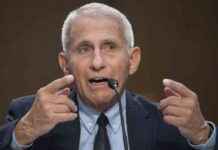Health and Human Services Secretary Robert F. Kennedy Jr. has stirred controversy by halting research into vaccine hesitancy and advocating for studies on the debunked link between vaccines and autism in children. Amidst this, the Trump administration withdrew the nomination of former GOP congressman Dave Weldon, a vaccine skeptic, to lead the Centers for Disease Control and Prevention. This move has sparked speculation that Senate Republicans may be growing uneasy about the issue at hand.
In the midst of these developments, Congress grapples with the daunting task of cutting up to $880 billion in spending, potentially from programs like Medicaid. What makes this challenge even more complex is the fact that an increasing number of Medicaid beneficiaries have become Republican voters, adding a political dimension to the issue.
This week’s discussion panel features Julie Rovner of KFF Health News, Anna Edney of Bloomberg News, Shefali Luthra of The 19th, and Alice Miranda Ollstein of Politico. Together, they offer valuable insights into the evolving landscape of health policy and its implications.
Speculation Surrounding Dave Weldon’s Nomination
One of the key takeaways from this week’s events is the abrupt withdrawal of Dave Weldon’s nomination to head the CDC. Weldon’s anti-vaccine stance, particularly his promotion of discredited theories linking vaccines to autism, likely raised concerns among senators, leading to his nomination’s cancellation. This incident underscores the growing divide over vaccine policies and their impact on public health.
Another significant development is the Senate Democrats’ opposition to a proposed continuing resolution to fund the government through September 30. This resistance stems from various concerns, including cuts to medical research and the absence of measures to prevent payment reductions for Medicare doctors. The Democrats advocate for a 30-day funding bill to facilitate bipartisan negotiations, highlighting the complexities of budgetary decisions in the healthcare realm.
Implications of Medicaid Cuts and Federal Workforce Reductions
As discussions on budget cuts intensify, Medicaid emerges as a focal point, with Republicans exploring ways to finance tax cuts through federal spending reductions. The potential ramifications of Medicaid cuts on rural hospitals and the expansion population covered under the Affordable Care Act prompt crucial deliberations among House Republicans.
Furthermore, ongoing staff reductions in federal agencies raise concerns about service quality for constituents and the mental health of the federal workforce. The lack of severance pay for dismissed employees and restrictions on unemployment benefits pose challenges for federal workers, amplifying the human impact of policy decisions made in Washington.
Amidst these policy shifts, the Trump administration’s decision to revoke $250 million in NIH grants to Columbia University underscores a broader trend of funding cuts in scientific research. Such uncertainties have prompted universities to freeze hiring and retract graduate student admissions, signaling potential disruptions in the scientific community. Additionally, recent regulatory changes within HHS and the National Cancer Institute have sparked fears that political considerations are influencing health policy decisions at the federal level.
In a recent interview, Jeff Grant, a retired CMS employee with 41 years of government service, sheds light on his experiences and insights into the evolving landscape of healthcare policy. As these developments unfold, it is essential for policymakers and the public to remain informed and engaged in shaping the future of healthcare in the United States.
With a diverse range of perspectives and expert commentary, this week’s panel discussion offers valuable insights into the complex interplay of politics, healthcare, and public health. By examining these issues through a critical lens, stakeholders can work towards solutions that prioritize the well-being of individuals and communities across the nation.

















